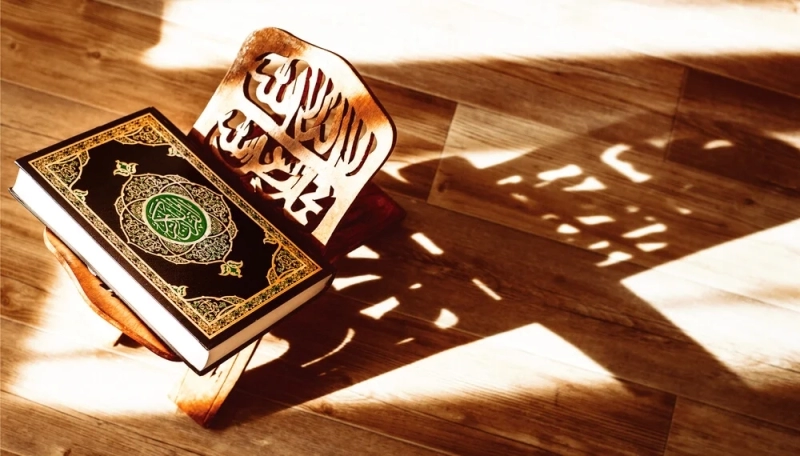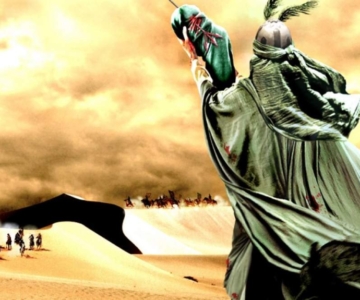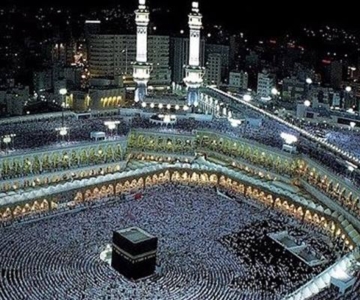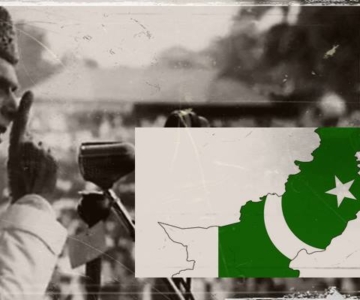By Maulana Wahiduddin Khan

(Translated from Urdu by Yoginder Sikand)*
The word ‘jihad’ is derived from the root juhd, which means ‘to strive’ or ‘to struggle’. It denotes the exertion of oneself to the utmost, to the limits of one’s capacity, in some activity or for some purpose. This is how the word is understood in Arabic grammar.
Because fighting against one’s enemies is also one form of this exertion or striving, it is also sometimes referred as jihad. However, the actual Arabic word for this is qital, not jihad. Fighting with one’s enemies is something that might happen only occasionally or exceptionally. However, jihad, properly understood, is a continuous action or process that animates every day and night of the life of the true believer. Such a person does not let any hurdle affect his life, including desire for gain, the pressure of customs, the demands of pragmatism, lust for wealth, etc.. All these things serve as hurdles in the path of doing good deeds. Overcoming these hurdles and yet abiding by the commandments of God is the true jihad, and this is the essential meaning of the concept of jihad. There are many references to jihad, as understood in this way, in the collections of sayings attributed to the Prophet Muhammad.
The present world is a testing ground, and its environment has been fashioned in such a way that human beings are constantly put to the test. In the course of this test, human beings are faced with numerous hurdles, to face which one must repeatedly suppress or sacrifice one’s own desires or, in some cases, even one’s own self. Overcoming these odds and facing all sorts of difficulties and losses but still remaining firm on the path of truth is the real and fundamental jihad. Those who remain steadfast in the path of this jihad will be blessed with entrance to paradise.
Jihad, in essence, is a form of peaceful action or activism. This peaceful activism can take the form of inviting others to the path of truth. The Quran advises us not to obey those who champion falsehood, and tells us to engage in jihad with them through the Quran. This means that one should respond to them by inviting them to the path of the truth, striving till one’s utmost in this regard. The jihad that this Quranic verse refers to is not physical warfare. Rather, reference here is to intellectual and ideological activism. In short, it means refuting falsehood and advancing the cause of the truth [using peaceful means].
Qital, which is one form of jihad, involves physical warfare, but this also cannot be divorced from the issue of essentially peaceful jihad. If an enemy challenges one militarily or through physical force, one should still strive to the utmost possible to respond through peaceful means. Such means can be abandoned only when it is no longer possible to use them or when warfare becomes the only way to respond to the violence being unleashed.
In this regard, a statement attributed to Hazrat Ayesha [one of the wives of the Prophet] serves as a guiding principle. This statement is contained in the Sahih Bukhari, a book of traditions attributed to the Prophet. She said that whenever the Prophet was faced with two choices, he would always opt for the easier one. This means that he would prefer the easier option and would ignore the harder option. This principle of the Prophet applied not only to routine affairs of life but also to serious matters such as war, which is itself a difficult option. A reading of the life of the Prophet reveals that he never initiated fighting on his own. Whenever his foes sought to force him into battle, he would always try to seek some means to avoid physical fighting. He engaged in fighting only when all other options were closed. Thus, as the Prophet’s practice reveals, offensive war is forbidden in Islam. Islam allows only for defensive war, and that too only when this becomes absolutely unavoidable.
In reality, in life one is always faced with the dilemma of making choices between different options. Some options are based on peace, others on violence. The accounts of the Prophet’s life indicate that in every matter he preferred the former. A few instances from his life are in order to illustrate this fact:
1. Soon after being appointed as a prophet, he was faced with a choice between the two sorts of options. His mission was to end polytheism and to establish pure monotheism, belief in and surrender to the one God. The Kaaba in Mecca had originally been made as a centre for the worship of the one God, but by the time of the advent of the Prophet some 360 idols had been installed therein. Hence, one might think that in the Quran the Prophet should have first been instructed to purify the Kaaba of the idols and to remake it as a centre for monotheism. But had this been the case , this would have been tantamount to warring with the Qureish of Mecca, who enjoyed leadership among the Arabs precisely because they were custodians of the Kaaba. History tells us that [at this stage] the Prophet restricted himself simply to the spreading the message of monotheism instead of removing the idols from the Kaaba. This, in a sense, is a major instance of the Prophet choosing a peaceful, as opposed to violent, option.
2. Choosing and abiding by the peaceful option, the Prophet carried on his preaching work for thirteen years in Mecca. Despite this, the Qureish fiercely opposed him, so much so that the Qureish elders plotted to kill him. Accordingly, they armed themselves with swords and surrounded his house. This was nothing sort of a declaration of war against the Prophet and his companions. However, guided by God, the Prophet decided not to retaliate militarily, and in the darkness of night he left Mecca and travelled to Medina. This journey is known in Islam as the Hijrah. The hijrah exemplifies the choice of the use of the peaceful option, instead of a violent option.
3. The ‘Battle of the Trench’ is another example of the choice of the peaceful option by the Prophet. On this occasion, an army of the Prophet’s opponents marched on Medina to attack the Prophet. This was an open declaration of war on their part. However, in order to avoid fighting, the Prophet arranged for a trench to be dug around the town. This served as a buffer against the attackers. Consequently, the Qureish army spent just a few days camped beyond the trench and then went back. Constructing the trench to keep off the invading Qureish was another example from the Prophet’s life of choosing a peaceful, instead of violent, option.
4. Likewise, in the case of the Treaty of Hudaibiyah. The Prophet and his companions wanted to worship at Mecca, but they were stopped by the Qureish chiefs at a place called Hudaibiyah and were asked to go back to Medina. The Qureish said that they would not allow them to enter Mecca at any cost. This was, in a sense, a declaration of war on their part. If the Prophet had proceeded with his plans of proceeding to Mecca to worship, it would have meant armed conflict with the Qureish. However, the Prophet chose not to go ahead. Instead, he peacefully accepted a one-sided treaty with the Qureish and returned to Medina. This is yet another example of the Prophet choosing the peaceful, instead of violent, option.
5. This practice and preference was also evident when the Prophet finally took over Mecca. On this occasion, he was accompanied by ten thousand devoted companions, who could easily have militarily defeated the Qureish of Mecca. However, here, too, the Prophet did not use physical force to capture the town. Instead, he quietly travelled, along with his companions, to Mecca and entered it. This happened so suddenly that the Qureish were unable to make any preparations against them. Consequently, Mecca was won without any bloodshed. This, too, is an example of the choice of peaceful, instead of violent, means.
These examples suggest that not just in ordinary situations, but also in situations of emergency, the Prophet resorted to peaceful, as opposed to violent, means. As indicated above, in Islam peace is the rule and war is the exception, and that too only when it becomes unavoidable. Keep this principle in mind and survey the world today. Today’s world is very different from the world of ancient times, when war was the rule and was commonly resorted to. Choosing peaceful means was very difficult. However, today the situation has completely changed. In today’s world, resort to violence has become completely useless and undesirable, while the use of peaceful means alone is generally accepted. So acceptable has the peaceful option become that it has emerged as a powerful force in its own right. Today, one can press one’s views peacefully, through use of the right to free expression, using modern communications and the media. These developments have made the peaceful option even more efficacious.
As mentioned earlier, the Prophet’s practice indicates that when peaceful options are available, they should be used and violent means should be abstained from. In today’s context not only are peaceful methods and options available in plenty, but also, owing to various supporting factors, they are much more effective. It would not be an exaggeration to claim that in today’s world violent methods have not only become more difficult, but also, in practical terms, completely useless. In contrast, peaceful methods are easier and also much more effective. Peaceful methods have now become the only possible and efficacious option. In this context one can claim that violent methods have to be abandoned, or what in the language of the shariah is called ‘mansukh’ or abrogated. Now the followers of Islam have only one option to choose, and that, without any doubt, is the peaceful option, unless, of course conditions change so much that the directive needs to be changed.
It is true that in the past violent means were occasionally used but these were only under compulsion due to temporal factors. Now, because conditions have so changed that the compulsion no longer remains, the use of violent means is no longer necessary and is undesirable. Under the new conditions, only peaceful methods should be used. As far as the issue of jihad is concerned, peace is the rule and war has the status of only an unavoidable exception….
….According to a well-known principle of Islamic jurisprudence, rules change in the wake of change of time and place. This means that when the context changes one must seek to re-apply the juridical rule in accordance with and to suit the new context. This principle applies as much to issues of war as it does to other matters. This principle thus demands that violent methods be declared as abandoned and only peaceful methods should be given the status of being sanctioned by the shariah.
Contemporary ‘Jihadi’ Movements
Today, in various countries Muslims are involved in armed movements in the name of ‘Islamic jihad’. However, simply by being called as a ‘jihadi’ movement by its leaders no such movement can be actually considered thus. No action can be considered as a legitimate jihad unless it fully meets the conditions as laid down in Islam. Those battles that are being fought in the name of jihad without meeting the conditions of jihad cannot be termed as jihad. Rather, they are fasad or strife [the opposite of jihad]. And those who are engaged in such activities will not get the reward [from God] of jihad. Instead, they will be considered worthy of punishment in God’s eyes.
I have written extensively elsewhere about the various conditions necessary for qital or physical war to be truly considered as jihad. Here I wish to clarify just one point, and that is that jihad in the sense of qital is not a private act in the same manner as prayers and fasting. Rather, it is an act that is entirely associated with a state or government. This is clearly indicated in the Quran and the Hadith [reports attributed to or about the Prophet Muhammad]. For instance, the Quran says that in the face of intimidation by the enemy, individuals should not take any action on their own, but, instead, should turn to those in charge of their affairs so that the latter can understand the matter in a proper perspective and take appropriate and necessary steps. This means that individual members of the public cannot decide issues of war on their own. This is something left to the government to handle.
Likewise, a Hadith report states that the Imam or leader is like a shield, war is conducted under his control and through him safety is ensured. This means that war and defence must always be left to the rulers to manage….
…There is an almost unanimous opinion on this issue in the Islamic juridical tradition and almost no noted Islamic scholar has dissented from this. Hence, the [almost] unanimous opinion of the Islamic jurisprudents is that war can be declared only by an established government. Subjects or citizens of a state do not have the right to do so […]Today, in various places Muslims are engaged in fighting with governments in the name of jihad. However, almost without exception, these are not really Islamic jihads, but, rather, are fasad or condemnable strife. None of these so-called jihads has been declared by any government. All of these self-styled jihads have been declared and are conducted by non-state forces and actors. If some of these violent movements have the backing of any Muslim government, this is being done secretly, while according to the shariah jihad on the part of a government must entail an open declaration. Without this, qital on the part of a Muslim government is illegal.
Today, the various violent movements in the name of jihad being engaged in by some Muslims are of two types: they are either guerrilla wars or proxy wars. Both sorts of war are completely illegal according to Islam. Guerrilla wars are unacceptable in Islam because they are led and conducted by non-state actors, not by any established government. Likewise, proxy wars are unacceptable in Islam because the governments behind them do not issue a formal and open declaration of war. This is not allowed in Islam.
Summary
Islamic jihad, properly understood, is a constructive and continuous process. It remains active throughout the life of a true believer. It has three aspects:
a. Jihad-e nafs or the struggle against the baser self or the ego, against one’s passions and wrong desires and to remain steadfast in one’s commitment to lead the life that God wants for human beings.
b. Jihad in the sense of striving, using peaceful means, to communicate God’s word to all of His slaves, inspired by a compassion and concern for others, even if this is not reciprocated. This is the great jihad according to the Quran.
c. The third form of jihad relates to confronting one’s foes and to remain firmly committed to the faith under all conditions. In the past, this form of jihad in the past was basically a peaceful action, and so remains even today. In this sense, jihad, properly understood, is a peaceful struggle, not military or physical confrontation.
—-
This is a translation of a chapter of Maulana Wahiduddin Khan’s acclaimed Urdu book Aman-e Alam (‘Global Peace’) [Goodword Books, New Delhi, 2005, pp.27-37]. Maulana Wahiduddin Khan can be contacted on info@goodwordbooks.com.



